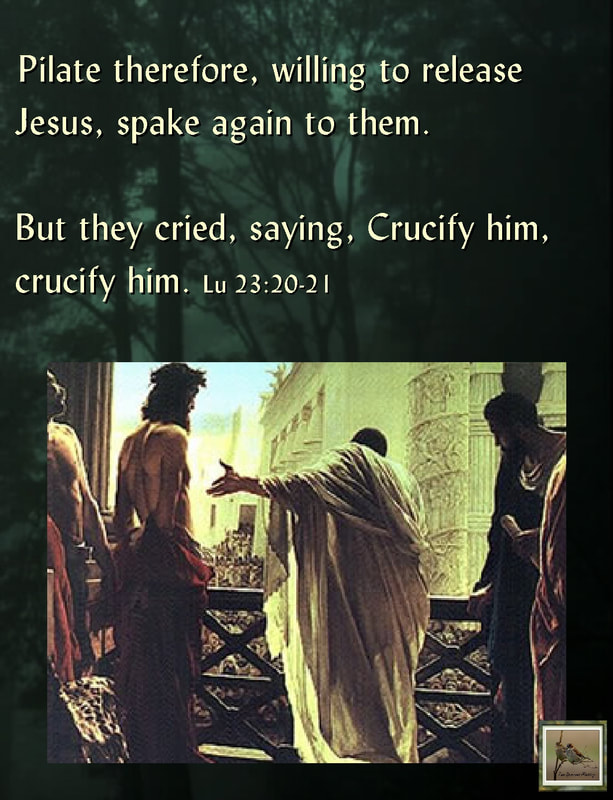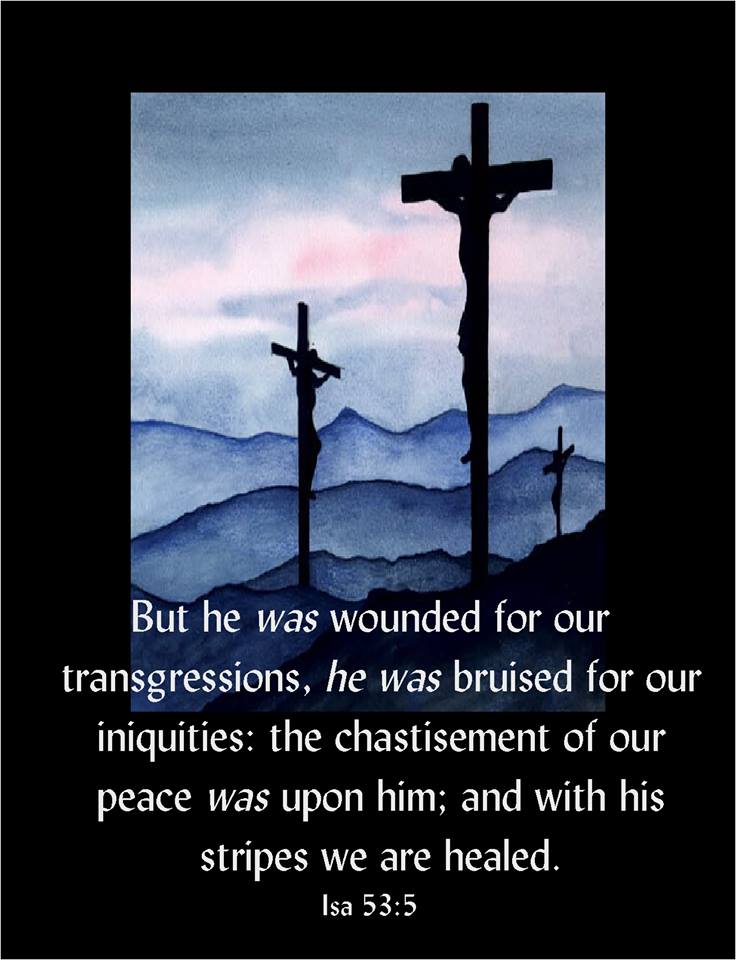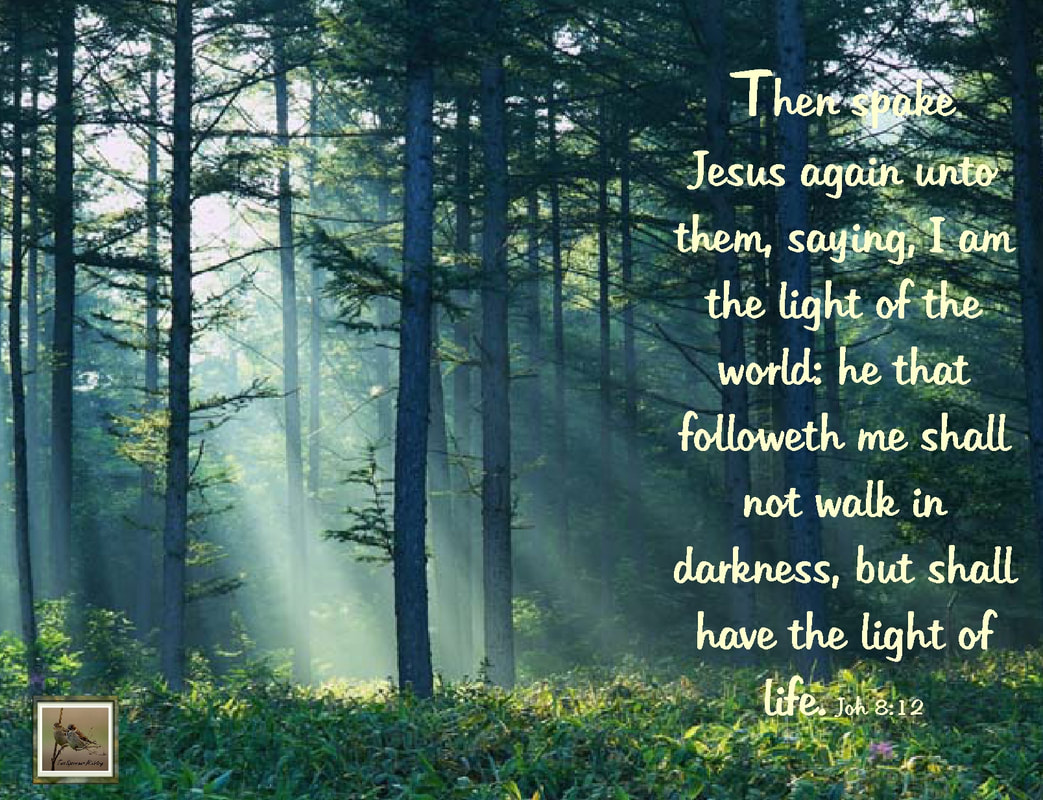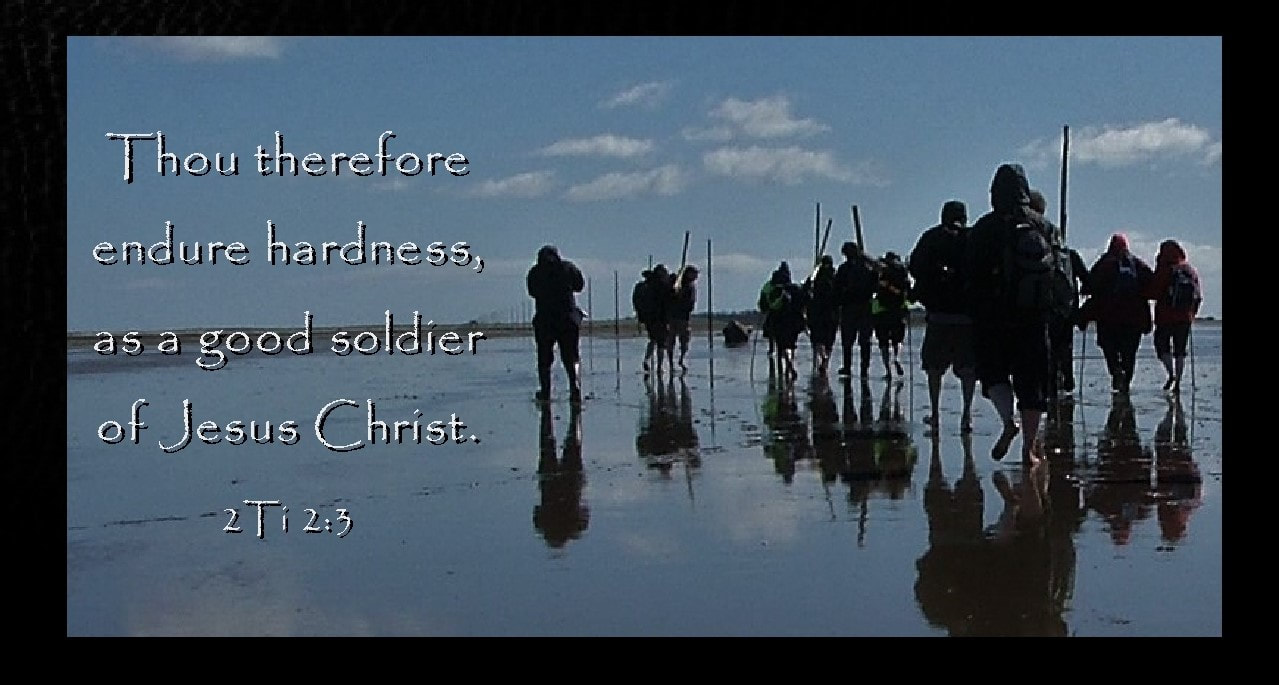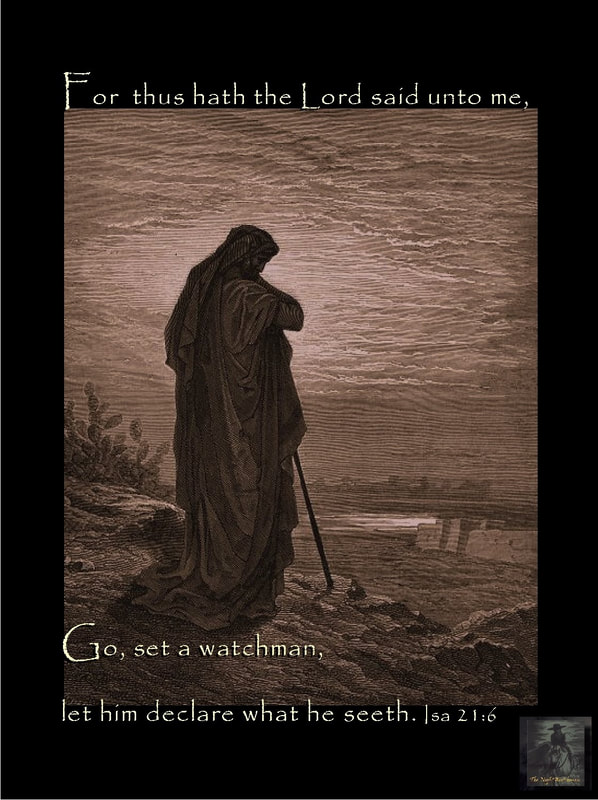|
And the high priest stood up in the midst, and asked Jesus, saying, Answerest thou nothing? what is it which these witness against thee? But he held his peace, and answered nothing. Again the high priest asked him, and said unto him, Art thou the Christ, the Son of the Blessed? And Jesus said, I am: and ye shall see the Son of man sitting on the right hand of power, and coming in the clouds of heaven. Mark 14:60-62 A MOCKERY OF JUSTICE Eloquent Silence There is a silence which is often more eloquent than speech, means more than any words, and speaks ten times more powerfully to the heart. Such, for example, is the silence when the heart is too full for utterance, and the organs of speech are choked by the whelming tide of emotion. The sight of a great man so shaken, and quivering with feeling, that the tongue can give no voice to what the heart feels, is of all human rhetoric the most potent. Such, also, is the silence of a wise man challenged to speak by those whom he feels unworthy of his words. The man who can stand and listen to the language of stolid ignorance, venomous bigotry, and personal insult, addressed to him in an offensive spirit, and offers no reply, exerts a far greater power upon the minds of his assailants, than he could by words however forceful. His silence reflects a moral majesty, before which the heart of his assailants will scarcely fail to cower. Such was the silence which Christ now maintained in this hall. (Homilist.) The Value of Christ’s Oath Before Pilate Jesus could have mounted a magnificent defense here, calling forth all the various witnesses to His deity, power and character. The people He taught, the people He healed, the dead risen, the blind who see, even the demons themselves testified to His deity. But Jesus opened not His mouth; He was led as a lamb to the slaughter, and as a sheep before its shearers is silent, so He opened not His mouth (Isa_53:7). Isa 53:7 He was oppressed, and he was afflicted, yet he opened not his mouth: he is brought as a lamb to the slaughter, and as a sheep before her shearers is dumb, so he openeth not his mouth. When asked under formal oath to “incriminate” Himself, Jesus essentially said, “You now stand in judgment of Me, but I will be the ultimate judge.” These were words that would have given any wise judge pause, but had no affect on His accusers at all. Here we see that Jesus was on trial - He seemed to lose, but He really won. His conduct at His trial showed His innocence, and was all part of the plan of redemption - which we must receive as God’s gift. In a real sense, it isn’t Jesus that is on trial - it is more true to say that the religious leaders were on trial - and they seemed to win, but they really lost. We all are on trial before Jesus, and will be held to account for our deeds, and what we do with Him. Jesus could have called witness after witness, and pointed to irrefutable evidence that He was indeed the Christ, the Son of God. But He knows that these hardened hearts care nothing for the facts of this case, so He simply testifies to the truth: It is as you said. You will see the Son of Man sitting at the right hand of the Power, and coming on the clouds of heaven: Jesus did add this one word of warning. He warned them that though they sit in judgment of Him now, He will one day sit in judgment of them - and with a far more binding judgment. Insights And Takeaway's When our Lord was upon earth, the measure of the fulness of His revelation to men was conditioned by their disposition towards Himself, and by their general moral character. This explains His silence to Caiaphas, to Herod, and to Pilate. In like manner the Scriptures are silent to some and full of heavenly wisdom for others. That which a man will get out of the Bible depends on what he brings to the Bible. The eye can see only what it brings with it the power of seeing. Prejudice, whatever be its source, gets nothing out of the Scriptures. If you bring a full pitcher to a spring you can get nothing from that spring. Habitual indulgence in sin will also prevent us from getting any answer to our inquiries from Scripture. Hardened sinners find nothing good in the Bible, because their moral sense is so hardened that they do not know good when they see it. The Herods of today get no answer from Christ. The influence of scepticism makes the Scriptures silent. Pilate did not believe there was any truth, and if there was, it could not be known. He belonged to the school of the elder Pliny, who said, "There is no certainty, except that nothing is certain." I do not wonder that philosophers who have adopted this philosophy can find nothing in the Bible. They must first believe that truth is, and then Christ will tell them what it is. The Wisdom In His Silence In putting ourselves in this account, and observing the events unfolding, we learn that there may often be prudence, wisdom, dignity, and power in silence.
The Savior in the midst of His enemies was silent, the most effective and suitable reply which He could have made to their accusations. These accusations were false and frivolous. His life and doctrine themselves, were a sufficient reply. No verbal defense could have been so powerful. No verbal defense would have availed him anything with those who were determined to procure His condemnation. It was not for Him to join in a war of words; His last hours should be tranquil. How solemnly His silence rebukes the vociferation of the priests and populace. There are seasons and occasions when silence for ourselves may be better than speech, sharper than argument, and more effective than verbal reply. When our characters are attacked. If we are living a life which can defend us, let us be silent, and let our life speak. Silence is often the best reproof of profane conversation. His silence was full of suffering, suffering that was vicarious; he was taking the punishment we deserved, and bearing it in silence. In silence he bore the suffering, becoming the sacrifice for our sins, and making atonement for us. His silence was ominous. It foreshadowed ills. His silence said, “What more can I do unto My vineyard?” It is an appalling sign when Christ ceases to plead with us. He had nothing to say to his slayers. Christ was inspired, and thus full of instruction. His silence, spoke of his dignity, and even before Pilot; who saw this, and prompted his probing question to Jesus "and what is truth?" His hard heart blinded him to the TRUTH standing before him. Joh 18:37 Pilate therefore said unto him, Art thou a king then? Jesus answered, Thou sayest that I am a king. To this end was I born, and for this cause came I into the world, that I should bear witness unto the truth. Every one that is of the truth heareth my voice. Joh 18:38 Pilate saith unto him, What is truth? And when he had said this, he went out again unto the Jews, and saith unto them, I find in him no fault at all. Christ’s silence was beautiful. It was regal, exemplary, self-imposed-the silence of a King, performing his duty. He could, by a word, have made the world tremble; judge the accuser's before him, and all of them fall dead before Him. Why was He silent? He came not to be His own advocate, but ours. Lorna Couillard For we would not, brethren, have you ignorant of our trouble which came to us in Asia, that we were pressed out of measure, above strength, insomuch that we despaired even of life: But we had the sentence of death in ourselves, that we should not trust in ourselves, but in God which raiseth the dead: Who delivered us from so great a death, and doth deliver: in whom we trust that he will yet deliver us; 2Co 1:8-10 Our passage speaks again of the Lord's resurrection power operating in our daily Christian lives, in the process of sanctification and spiritual growth. The setting in which the Lord did this resurrecting work was in the midst of trials while serving God. Paul did not want other believers to be unaware of his difficulties. "For we do not want you to be ignorant, brethren, of our trouble which came to us in Asia." Too often, we are tempted to keep our struggles totally private. Thereby, we rob glory from God, when He delivers us. Also, we keep others from learning important lessons that come from watching God fulfill the faithful promises of His word. Paul's battles were severe on this occasion. "We were burdened beyond measure, above strength, so that we despaired even of life. Yes, we had the sentence of death in ourselves." Spiritually speaking, these trials were killing Paul and his missionary team. They were pressed down, overwhelmed, helpless, and hopeless. When we are in hopeless despair, our sufferings seem to be pointless. Yet, our difficulties (like Paul's) have this invaluable purpose built into them: "that we should not trust in ourselves but in God who raises the dead." We have frequently noted that living by grace requires humility and faith. God gives grace to the humble, and faith accesses grace. Well, in the trials of life, God is working on developing these relational realities (spiritual realities that become real through a growing relationship with Jesus). Trials and difficulties become occasions to be humbled before God. We are provoked to cry out to God in helplessness. Also, trials present new opportunities to trust in the Lord. When the trials are intense, God is purging us of the primary obstacle to trusting in God, and that is self-trust. "Yes, we had the sentence of death in ourselves, that we should not trust in ourselves but in God who raises the dead." Thus, convinced that we cannot handle it, we call upon God, who faithfully resurrects us from our circumstantial death. "Who delivered us from so great a death." Thereby, faith grows that He will continue to rescue us: "and does deliver us; in whom we trust that He will still deliver us." (Day By Day By Grace) Note: What part of Paul's history in these references are, is not sure, but it's thought they are in regard to the suffering and trials at Lystra, when he was stoned and left for dead, and other severe persecutions he endured; that in all human sense, destroyed his life. His being raised back up, was an evidence of God's miraculous intervention in his life. WHAT CAN WE LEARN FROM THESE VERSES I. Are often experienced in the rest of enterprises (2Co_11:23; 2Co_11:29). II. Are ever necessary for the rendering of the highest service to mankind (verse 6). III. Their detailment purely for the good of others is justifiable (2Co_1:8). IV. Their experience often proves a blessing to the sufferer. They seem to have done two things for Paul-- 1. To have transferred his trust in himself to God (2Co_1:9). 2. To have awakened the prayers of others on his behalf (2Co_1:11). (D. Thomas, D. D.) The peculiar afflictions of God’s people I. God suffers his children to fall into great extremities. 1. To try what mettle they are made of. Light afflictions will not try them thoroughly, great ones will. What we are in great afflictions, we are indeed. 2. To try the sincerity of our estate, to make us known to the world and known to ourselves. A man knows not what a deal of looseness he hath in his heart, and what a deal of falseness, till we come to extremity. 3. To set an edge upon our desires and our prayers (Psa_130:1). 4. To exercise our faith and patience. 5. To perfect the work of mortification. 6. To prepare us for greater blessings. Humility doth empty the soul, and crosses do breed humility. The emptiness of the soul fits it for receipt. Why doth the husbandman rend his ground with the plough? Is it because he hath an ill mind to the ground? No. He means to sow good seed there, and he will not plough a whir longer than may serve to prepare the ground (Isa_28:24). So likewise the goldsmith, the best metal that he hath, he tempers it, he labours to consume the dross of it, and the longer it is in the fire the more pure it comes forth. 7. That we might set a price upon the comforts when they come. 8. Learn, then-- (1) Not to pass a harsh, rigid censure upon ourselves or others for any great affliction or abasement in this world. (2) Not to build overmuch confidence on earthly things. DEVELOPMENT OF FAITH IN THE FACE OF DEATH II. As God’s children are brought to this estate, so they are sensible of it. They are flesh and not steel (Job_6:12). They are men and not stones. They are Christians and not Stoics. III. We may triumph over death by faith and grace. That we may not fear death overmuch, let us look upon it in the glass of the gospel as it is now in Christ, and meditate on the two terms, from whence and whither. What a blessed change it is if we be in Christ! (R. Sibbes, D. D.) Death a sentence Death is-- I. A sentence. 1. Universal. 2. Just. 3. Irrevocable. II. As a sentence in man. “We have the sentence of death in ourselves.” 1. The sentence of death is in man’s body. It is born with him, and it continues to work within until the organization falls back to its original dust. “The moment we begin to live we all begin to die.” 2. The sentence of death is in man’s mind. There it dwells as a dark thought spreading a gloom over the whole of his life. It haunts the memory, it terrifies the conscience. It is in us, we cannot get rid of it. No science can expel it from the body, no reason can argue it from the soul. III. As a sentence in man for useful ends. What are the spiritual uses it is designed to answer? 1. Nontrust in self. “Not trust in ourselves.” There is a self-reliance that is a duty. But there is a self-confidence that is sinful and ruinous. Now the sentence of death tends to check this. It makes man feel his frailty. Thank God for death, it keeps down the arrogant spirit of humanity. 2. Devout trust in God. “But in God that raiseth the dead.” Man’s well-being is essentially dependent upon trust in God. (Homilist.) (excerpt from Biblical Illustrator) Relevant Scriptures: 2Co 4:14 Knowing that he which raised up the Lord Jesus shall raise up us also by Jesus, and shall present us with you. See also: 2Co_5:1-4; Isa_26:19; Joh_11:25-26; Rom_8:11; 1Co_6:14, 1Co_15:20-22; 1Th_4:14 Jesus' Victory Over Death Jesus Appears to His Disciples Joh 20:24 But Thomas, one of the twelve, called Didymus, was not with them when Jesus came.
Joh 20:25 The other disciples therefore said unto him, We have seen the Lord. But he said unto them, Except I shall see in his hands the print of the nails, and put my finger into the print of the nails, and thrust my hand into his side, I will not believe. Joh 20:26 And after eight days again his disciples were within, and Thomas with them: then came Jesus, the doors being shut, and stood in the midst, and said, Peace be unto you. Joh 20:27 Then saith he to Thomas, Reach hither thy finger, and behold my hands; and reach hither thy hand, and thrust it into my side: and be not faithless, but believing. Joh 20:28 And Thomas answered and said unto him, My Lord and my God. Joh 20:29 Jesus saith unto him, Thomas, because thou hast seen me, thou hast believed: blessed are they that have not seen, and yet have believed. Joh 8:56 Your father Abraham rejoiced to see my day: and he saw it, and was glad. Joh 8:57 Then said the Jews unto him, Thou art not yet fifty years old, and hast thou seen Abraham? Joh 8:58 Jesus said unto them, Verily, verily, I say unto you, Before Abraham was, I am. The text is one of those rare passages in which Jesus Christ appears to stand upon His own dignity, in which the Lowly, the Humble, the Unresisting Son of man asserts His high origin, claiming to be God, for it amounts to no less: God from everlasting. "Before Abraham was, I am." I. Abraham rejoiced to see the day of Christ. He had a glimpse of that day of the birth of Jesus Christ, born of the Virgin Mary, as He had a glimpse also of the manner in which Jesus Christ should work out our redemption. He took his son Isaac and offered him up on Mount Moriah—that Isaac so exceedingly dear, of whom it was said, that "in Isaac shall thy seed be called." He offered him up, his one hope of becoming the father of many nations. And that act of Abraham—that act of faith, was counted unto him for righteousness; and he is held up for ever as the father of the faithful. To him, as St. Paul writes, "The Scripture foreseeing that God would justify the heathen through faith, preached before the Gospel, saying, In thee shall all nations be blessed." II. Jesus Christ Himself lived before Abraham was born. Whenever God is spoken of as holding communion and as being visible to man, it is in the Second Person of the Holy Trinity, God, the Son, Jesus Christ. It is He who declares to us the Father. It is He who represents God to us, and is Himself God, even Jesus Christ. This was He who talked with and was called the friend of Abraham. It was He who was the Giver of the Law to Moses, it is He by whose agency the worlds were made, God the Supreme Deity dwelleth in the light which no man can approach: but Jesus Christ who is the image of the Invisible God, hath manifested, made known, declared to us, what God is; how good, how gracious, how ready to forgive, and how rich in mercy to those who call upon Him. It follows, then, that we should honour and worship Him as God, we should draw near with all reverence, with all holiness, with bowed heads and bowed hearts, to present our supplication before Him. (R. D. B. Rawnsley, Village Sermons)
I AM THAT I AM Joh 8:58 Jesus said unto them, Verily, verily, I say unto you, Before Abraham was, I am. Exo 3:13 And Moses said unto God, Behold, when I come unto the children of Israel, and shall say unto them, The God of your fathers hath sent me unto you; and they shall say to me, What is his name? what shall I say unto them?
Exo 3:14 And God said unto Moses, I AM THAT I AM: and he said, Thus shalt thou say unto the children of Israel, I AM hath sent me unto you. The full expression: that is, “I am what I am.” The words express absolute, and therefore unchanging and eternal Being. The name, which Moses was thus commissioned to use, was at once new and old; old in its connection with previous revelations; new in its full interpretation, and in its bearing upon the covenant of which Moses was the destined mediator. From John 8:58 we understand that the One speaking to Moses at the burning bush-and during this commission-was Jesus Christ. This is why the people wanted to stone him, when Jesus made this proclamation, they knew he was claiming to be God. Joh 8:58 Jesus said unto them, Verily, verily, I say unto you, Before Abraham was, I am. Joh 8:59 Then took they up stones to cast at him: but Jesus hid himself, and went out of the temple, going through the midst of them, and so passed by. After his resurrection from the dead, Jesus cemented his victory on the cross, and proclaimed to the disciples, and all who stood by: Mat 28:18 And Jesus came and spake unto them, saying, All power is given unto me in heaven and in earth. Mat 28:19 Go ye therefore, and teach all nations, baptizing them in the name of the Father, and of the Son, and of the Holy Ghost: Mat 28:20 Teaching them to observe all things whatsoever I have commanded you: and, lo, I am with you alway, even unto the end of the world. Amen. Jesus received worship- giving more evidence of His deity, that He is God: Mat_28:9; Psa_2:12, Psa_45:11; Joh_5:23 Crucified With Christ Gal 2:19 For I through the law am dead to the law, that I might live unto God. Gal 2:20 I am crucified with Christ: nevertheless I live; yet not I, but Christ liveth in me: and the life which I now live in the flesh I live by the faith of the Son of God, who loved me, and gave himself for me. (Excerpt from David Guzik comm.) I through the law died to the law that I might live to God: When Paul died to the law, then he could live to God. As long as he still tried to justify himself before God, by all his law-keeping, he was dead. But when he died to the law, then he could live to God. i. “When a person is a Christian he is above law and sin. When the Law accuses him, and sin wants to drive the wits out of him, a Christians looks to Christ. A Christian is free. He has no master except Christ. A Christian is greater than the whole world.” (Luther) ii. “We are not to think that the Law is wiped out. It stays. It continues to operate in the wicked. But a Christian is dead to the Law. For example, Christ by His resurrection became free from the grave, and yet the grave remains. Peter was delivered from prison, yet the prison remains. The Law is abolished as far as I am concerned, when it is has driven me into the arms of Christ. Yet the Law continues to exist and to function. But it no longer exists for me.” (Luther) iii. “Blessed is the person who knows how to use this truth in times of distress. He can talk. He can say: ‘Mr. Law, go ahead and accuse me as much as you like. I know I have committed many sins, and I continue to sin daily. But that does not bother me. You have got to shout louder, Mr. Law. I am deaf, you know. Talk as much as you like, I am dead to you. If you want to talk to me about my sins, go and talk to my flesh. Belabor that, but don’t talk to my conscience. My conscience is a lady and a queen, and has nothing to do with the likes of you, because my conscience lives to Christ under another law, a new and better law, the law of grace.’“ (Luther) c. I have been crucified with Christ: Again, Paul anticipates a question from those who disagree with him. “Paul, when did you die to the law? You like pretty alive to me!” Paul is happy to answer, “I have been crucified with Christ. You want to know when I died to the law? I died to the law when Jesus died on the cross. He died in my place on the cross, so it is like it was me up on the cross. He died, and I died to the law when He died.” d. It is no longer I who live, but Christ lives in me: Since we died with Christ on the cross, we have a different life. Our old life, lived under the law, is dead. Now we are alive to Jesus Christ, and Jesus is alive in us (but Christ lives in me). i. Paul realized that on the cross, a “great exchange” occurred. He gave Jesus his old, try-to-be-right-before-God-by-the-law life, and it was crucified on the cross. Then Jesus gave Paul His life to life - Christ came to live in him. So Paul’s life isn’t his own anymore, it belongs to Jesus Christ! Paul doesn’t own his own life (that life died); he is simply “managing” the new life Jesus gave him. ii. The life Jesus lives in us is glorious. “Christ is no sheriff. He is ‘the Lamb of God, which takes away the sins of the world.’ (Joh_1:29)” (Luther) e. And the life which I now live in the flesh I live by faith: Paul can only “manage” the new life Jesus gave him by faith. You can’t live the new life Jesus gives on the foundation of law-keeping. You can only live it by faith. i. When Paul says I now live in the flesh, he doesn’t mean that he lives a chronically sinful life. “By the term ‘flesh’ Paul does not understand manifest vices. Such sins he usually calls by their proper names, as adultery, fornication, etc. By ‘flesh’ Paul understands what Jesus meant in the third chapter of John, ‘That which is born of the flesh is flesh’. (Joh_3:6) ‘Flesh’ here means the whole nature of man, inclusive of reason and instincts. ‘This flesh,’ says Paul, ‘is not justified by the works of the law.’“ (Luther) ii. The point of this verse isn’t the flesh, it is faith. “Faith is not simply a topic about which Paul preached from time to time. Nor is it a virtue which he practised occasionally. It is central in all that he does.” (Morris) iii. “Faith connects you so intimately with Christ, that He and you become as it were one person. As such you may boldly say: ‘I am now one with Christ. Therefore Christ’s righteousness, victory, and life are mine.’ On the other hand, Christ may say: ‘I am that big sinner. His sins and death are mine, because he is joined to me, and I to him.’“ (Luther) f. In the Son of God who loved me and gave Himself for me: The faith Paul lives by is not faith in himself, faith in the law, or faith in what he can earn or deserve before God. It is faith in the Son of God, Jesus Christ - who loved me and gave Himself for me! i. Before, Paul’s relationship with God was founded on what he could do for God - his faith was in himself. Now, the foundation is what Jesus Christ has done for him - his faith is in Jesus. And Paul found a marvelous person to put his faith in! It is a person who loved him. It is a person who demonstrated that love when He gave Himself for Paul. ii. What confidence Paul can have in giving his life to, and living His life for, someone who loves him that much! When we realize the great love God has shown for us, it makes everything in the Christian life easier. g. Who loved me: Paul can confidently give himself to Jesus because of the love Jesus has demonstrated in the past. “It is true that he loves us now, but Paul also wrote truly, ‘Who loved me.’ The verb is in the past tense. Jesus loved me upon the cross; loved me in the manger of Bethlehem; loved me or ever the earth was. There never was a time when Jesus did not love his people.” (Spurgeon) i. Loved . . . gave Himself: The past tense is important. William Newell, in his commentary on Romans, speaks to the importance of the past tense in the word loved. “It is this past tense gospel the devil hates . . . Let a preacher be continually saying, ‘God loves you, Christ loves you,’ and he and his congregation will by and by be losing sight of both their sinnerhood and of the substitutionary atonement of the cross, where the love of God and of Christ was once for all and supremely set forth.” ii. “Did the Law ever love me? Did the Law ever sacrifice itself for me? Did the Law ever die for me? On the contrary, it accuses me, it frightens me, it drives me crazy. Somebody else saved me from the Law, from sin and death unto eternal life. That Somebody is the Son of God, to whom be praise and glory forever.” (Luther) h. Gave Himself for me: “For me is very emphatic. It is not enough to regard Christ as having died for the salvation of the world; each man must claim the effect and possession of this grace for himself personally.” (Calvin) i. “‘Loved me, gave Himself for me.’ He appropriates to himself, as Chrysostom observes, the love which belongs equally to the whole world. For Christ is indeed the personal friend of each man individually; and is as much to him, as if He had died for him alone.” (Lightfoot) ii. “If any man might have said, ‘The Son of God, whom I have loved, and to whom I have given myself,’ it would have been the apostle . . . but here he thinks not of himself, or of what he had been led to do for the Lord, but only of what the Lord had done for him.” (Spurgeon) iii. “Take these blessed words of the apostle, and put them in your mouth, and let them lie there as wafers made with honey, till they melt into your very soul: ‘Who loved me, and gave himself for me.’“ (Spurgeon) Rom 8:3 For what the law could not do, in that it was weak through the flesh, God sending his own Son in the likeness of sinful flesh, and for sin, condemned sin in the flesh: Rom 8:4 That the righteousness of the law might be fulfilled in us, who walk not after the flesh, but after the Spirit.
Weary from several days of dealing with many trials, I opened this devotion tonight-and the Spirit of God pierced my heart with it's message; because it spoke directly to my condition, and yes, I shook my head in agreement, I felt just like that worm described in those verses. And failures, Oh yes, I've known failures; of many kinds. But, when I want to turn and walk away, or lay down and not get up again- I feel the Hand of God, moving me on. I get back up, and start again. Why, because God is greater than any problem, or enemy I may face. In comparison to The Creator of this universe-I am a worm. Whatever I may be facing-God is greater, and He can handle it. What I have to do is remember how He's seen me through every problem and trial in the years behind me, and know He hasn't changed-and He has the power to help me get the victory in whatever I'm facing today, just like He did then. The Holy Spirit drove this home to me, and healed my spirit, and restored my soul. May it do so for those who read this, as well. Fear thou not; for I am with thee: be not dismayed; for I am thy God: I will strengthen thee; yea, I will help thee; yea, I will uphold thee with the right hand of my righteousness. Behold, all they that were incensed against thee shall be ashamed and confounded: they shall be as nothing; and they that strive with thee shall perish. Thou shalt seek them, and shalt not find them, even them that contended with thee: they that war against thee shall be as nothing, and as a thing of nought. For I the LORD thy God will hold thy right hand, saying unto thee, Fear not; I will help thee. Fear not, thou worm Jacob, and ye men of Israel; I will help thee, saith the LORD, and thy redeemer, the Holy One of Israel. Behold, I will make thee a new sharp threshing instrument having teeth: thou shalt thresh the mountains, and beat them small, and shalt make the hills as chaff. Isa 41:10-15 Could any two things be in greater contrast than a worm and an instrument with teeth? The worm is delicate, bruised by a stone, crushed beneath the passing wheel; an instrument with teeth can break and not be broken; it can grave its mark upon the rock. And the mighty God can convert the one into the other. He can take a man or a nation, who has all the impotence of the worm, and by the invigoration of His own Spirit, He can endow with strength by which a noble mark is left upon the history of the time. And so the "worm" may take heart. The mighty God can make us stronger than our circumstances. He can bend them all to our good. In God’s strength we can make them all pay tribute to our souls. We can even take hold of a black disappointment, break it open, and extract some jewel of grace. When God gives us wills like iron, we can drive through difficulties as the iron share cuts through the toughest soil. "I will make thee," and shall He not do it? -- Dr. Jowett Christ is building His kingdom with earth’s broken things. Men want only the strong, the successful, the victorious, the unbroken, in building their kingdoms; but God is the God of the unsuccessful, of those who have failed. Heaven is filling with earth’s broken lives, and there is no bruised reed that Christ cannot take and restore to glorious blessedness and beauty. He can take the life crushed by pain or sorrow and make it into a harp whose music shall be all praise. He can lift earth’s saddest failure up to heaven’s glory. -- J. R. Miller (Streams in the Desert) "Follow Me, and I will make you"
Make you speak My words with power, Make you channels of My mercy, Make you helpful every hour. "Follow Me, and I will make you" Make you what you cannot be Make you loving, trustful, godly, Make you even like to Me. -- L. S. P. Let not your heart be troubled: ye believe in God, believe also in me. In my Father's house are many mansions: if it were not so, I would have told you. I go to prepare a place for you. And if I go and prepare a place for you, I will come again, and receive you unto myself; that where I am, there ye may be also. Joh 14:1-3 Jesus was about to go to the cross, suffer and die. He had just been betrayed by one of his own, even as he sat at the table with his brethren. In this atmosphere of sadness and despondency, he knew they at table with him would be left like sheep without a shepherd after his death. Lifting his gaze upon them, he discerns the sad, dejected state of anxiety in their faces, and speaks these words of comfort. He discloses his purpose in going, not as a final parting, but a further mission; in preparing a permanent place for them, to abide with Him forever, a home in heaven. With these words he placed seeds of hope, and faith, that would endure beyond the horror of the coming cross, and these seeds would remain. Satan would not be able to destroy what Jesus had instilled in them in the three years of ministry, and what they had witnessed while they were with him, and watched him daily as he ministered to the people and taught them. These words would solidify the bond of love, and relationship with them, that even death could not destroy. The memories of the miracles he had performed, and the integrity of his daily life, lived before them, would sustain them, even in the coming darkest hours; and beyond. A quote by Spurgeon brings clarity to this: "He will place us eternally where He is that we may be with Him. Can we not now, once for all, dismiss every fear in prospect of the endless bliss reserved for us?" (C. H. Spurgeon.) As we, His people in this day and hour look out on the troubled world scene we face daily, these words of comfort, hope, and the promises he gave to the disciples that night at supper with them before his death, are meant for us also. Another aspect of the Lord's comforting, described in Biblical Illustrator: Relief comes by belief. To be able in some overpowering grief to throw the weight of one’s care upon another and to trust wholly in that other’s help is an eminently satisfying process; while the trustless soul is without the least gleam of comfort. In these times of daring denial and of timid doubt it is well to be reminded that in the great crises of life—poverty, bereavement, affliction—denial is mockery and doubt is impotence, and that only an honest and hearty belief will secure sufficient solace. Christ solicits our faith on the ground of: A prior acknowledgment of the Divine. “Ye believe in God.” Christ desires nothing contrary to already existing and inborn Godward conceptions of the soul, but merely that we enlarge those conceptions so as to include Him. The defectiveness of our belief apart from Him. “Ye believe in God;” yes, but that is inadequate, it needs supplementing. The most anxious moments of humanity have been spent in searching's after such a view of God as would enable man to approach Him without dread. Humanity’s great longing has waited until Christ for its complete satisfaction. He has extracted from the thought of God all that is calculated to give pain and introduced everything calculated to give comfort. “God was in Christ reconciling the world unto Himself.” His personality. Trust must repose on a person to be trust at all. Christ asked for immediate trust in Himself, for with that would come a hearty belief in all He said and did. Finally, in these few verses, Jesus instills principles which are meant for all of us, who have put our trust and faith in Him: "Christ intends us to have “strong consolation.” Hope is as important a contribution to comfort as faith; the two together, exercised rightly, never fail. Without a future what is the present worth? An English nobleman once asked himself why there should be a future existence, and answered, “Because, on any other hypothesis, the world would be a piece of magnificent nonsense.” Christ, implying human immortality, reveals heaven. He bids the troubled be comforted by directing their hope to the positive existence of an absolutely untroubled state. Heaven is rendered attractive to us as much by its exemptions as by its possessions (Rev_21:4). Christ does present also a positive view. Heaven is a home. “In My Father’s house!” A house is not necessarily a home, but a father’s house always is, or ought to be. A happy earthly home is the nearest approach to an adequate conception of the life of heaven. “My Father’s house” is a happier home than the happiest of earthly ones." (excerpt from Biblical Illustrator)
As a good soldier of Jesus Christ, we can put these promises from Jesus in our hearts, and keep them embedded there, and march on, to the finish line.
2Ti 2:3 Thou therefore endure hardness, as a good soldier of Jesus Christ. Lorna Couillard |
Welcome
In this page there will be devotions/poems music and inspirational material 
The Lord Will Pour Out His Spirit
And it shall come to pass afterward, that I will pour out my spirit upon all flesh; and your sons and your daughters shall prophesy, your old men shall dream dreams, your young men shall see visions:
And also upon the servants and upon the handmaids in those days will I pour out my spirit. And I will shew wonders in the heavens and in the earth, blood, and fire, and pillars of smoke. The sun shall be turned into darkness, and the moon into blood, before the great and the terrible day of the LORD come. And it shall come to pass, that whosoever shall call on the name of the LORD shall be delivered: for in mount Zion and in Jerusalem shall be deliverance, as the LORD hath said, and in the remnant whom the LORD shall call. Joel 2:28-32 But this is that which was spoken by the
prophet Joel; And it shall come to pass in the last days, saith God, I will pour out of my Spirit upon all flesh: and your sons and your daughters shall prophesy, and your young men shall see visions, and your old men shall dream dreams: And on my servants and on my handmaidens I will pour out in those days of my Spirit; and they shall prophesy: Act 2:16-18 Resources
Madame Guyon - A Short and Easy Method of Prayer / Christian Audio Book (1 / 2) https://youtu.be/eihZWpAk7y4?si=PQ-_J3Y6i8u-N2Ac Union With God By Jeanne Guyon Chapter 1 Of 7 https://youtu.be/d5AfKS2dFLg?si=VtWAeEurkAddTDpL The Practice of the Presence of God - audiobook Brother LAWRENCE (1614 - 1691)- https://youtu.be/rRAs_BK1NR8?si=hGAL4C829aH7 DKMn Gander Story Poems
https://www.gander poems.org/ Archives
July 2024
|
Proudly powered by Weebly

